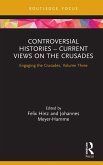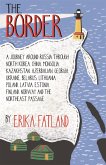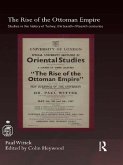Controversial Histories assembles current international views on the Crusades from across Europe, Russia, Turkey, the USA and the Near and Middle East. It is the ideal resource for students and educators of crusades history in a global context as well as military history and the history of memory.
Dieser Download kann aus rechtlichen Gründen nur mit Rechnungsadresse in A, B, BG, CY, CZ, D, DK, EW, E, FIN, F, GR, HR, H, IRL, I, LT, L, LR, M, NL, PL, P, R, S, SLO, SK ausgeliefert werden.
'Since the 1980s, history didactics has begun to reflect more on contemporary perceptions of history and historical events. [...]
The handbook begins with a methodological introduction in which the editors present the concept of the volume and introduce the notion of historical culture (pp. 1-20). The main part consists of 27 case studies, each of which traces the changing position of the Crusades in the historical culture of a nation on two to three pages, usually taking into account both the perspective of academia and non-academic views (pp. 21-97). In doing so, the editors have succeeded in attracting many big names in crusade scholarship, such as Michel Balard and Jonathan Phillips, to their project. The selection and number of nations covered is also convincing, as it covers a representative cross-section of those countries whose population understands the Crusades as part of their history.[3] This includes not only obvious candidates such as England (pp. 59-61), Spain (pp. 53-55) or France, which is represented twice (pp. 29-32 and 70-71), but also countries such as Syria (pp. 62-63) or Estonia (pp. 89-90), which were the target of the Crusades. Only Southeastern Europe, with the exception of Greece (pp. 42-44) and Turkey (pp. 47-49), is insufficiently represented in the collection. [...]
Notwithstanding the aforementioned problems, the handbook is thus a profitable read for history teachers at a time when different historical cultures and historical narratives clash in the classroom.'
Gion Wallmeyer in: H-Soz-Kult, 14.09.2022, .
'Within the increasingly globally oriented research, more attention is also being paid to the areas previously considered peripheral. The Crusades have also left their mark within historical culture. Thus, the ubiquitous term "crusade" is used in a figurative sense to describe very different activities.
This is where the editors of this volume pick up. Their interest is in the current reception of the Crusades in the countries of Europe and the Middle East affected by them. [...]
The intensity and seriousness of the editors' struggle to understand the extremely valuable and up-to-date source material they have collected are impressive.'
Bea Lundt in: Zeitschrift für Geschichtsdidaktik (2 02 1) 7/8, pp 765-767
The handbook begins with a methodological introduction in which the editors present the concept of the volume and introduce the notion of historical culture (pp. 1-20). The main part consists of 27 case studies, each of which traces the changing position of the Crusades in the historical culture of a nation on two to three pages, usually taking into account both the perspective of academia and non-academic views (pp. 21-97). In doing so, the editors have succeeded in attracting many big names in crusade scholarship, such as Michel Balard and Jonathan Phillips, to their project. The selection and number of nations covered is also convincing, as it covers a representative cross-section of those countries whose population understands the Crusades as part of their history.[3] This includes not only obvious candidates such as England (pp. 59-61), Spain (pp. 53-55) or France, which is represented twice (pp. 29-32 and 70-71), but also countries such as Syria (pp. 62-63) or Estonia (pp. 89-90), which were the target of the Crusades. Only Southeastern Europe, with the exception of Greece (pp. 42-44) and Turkey (pp. 47-49), is insufficiently represented in the collection. [...]
Notwithstanding the aforementioned problems, the handbook is thus a profitable read for history teachers at a time when different historical cultures and historical narratives clash in the classroom.'
Gion Wallmeyer in: H-Soz-Kult, 14.09.2022, .
'Within the increasingly globally oriented research, more attention is also being paid to the areas previously considered peripheral. The Crusades have also left their mark within historical culture. Thus, the ubiquitous term "crusade" is used in a figurative sense to describe very different activities.
This is where the editors of this volume pick up. Their interest is in the current reception of the Crusades in the countries of Europe and the Middle East affected by them. [...]
The intensity and seriousness of the editors' struggle to understand the extremely valuable and up-to-date source material they have collected are impressive.'
Bea Lundt in: Zeitschrift für Geschichtsdidaktik (2 02 1) 7/8, pp 765-767









